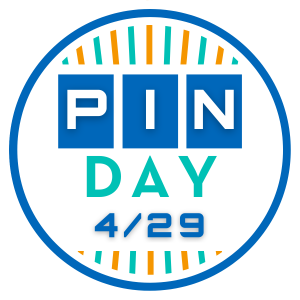March 24, 2021 | Katerli

On April 29, all CPL patrons will have PINs added to their patron accounts.
A PIN will be needed for any self-service transaction, for example, on our website or using self-check, but not for any person-to-person transaction at the Check Out Desk.
What is a PIN?
A Personal Identification Number (PIN) is a secondary form of authentication used to access your account that provides an extra layer of security.
How does a PIN help with security?
Using a PIN in conjunction with your library card number adds an extra layer of security to your account. If you lose your card or someone obtains your library card number, a PIN helps prevent unauthorized use of your library account.
What's the worst thing that could happen if someone hacked my library account?
If someone is able to access your library account, they could see your library history, such as what items you have checked out or on hold, your personal contact information like name and phone number, and they could check out items to your account and not return them, resulting in you being fined or billed.
PINs will be only numbers (no letters or special characters). They will have a minimum length of 7 digits and a maximum length of 13. We will add PINs for all patrons on April 29. You will then have the option to reset your PIN to a number of your choice.
Easy-to-remember PINs we suggest, if you choose to reset:
- 7 digit phone number,
- 9 digit phone number,
- 10 digit phone number,
- 8 digit date of birth [Your birthdate will be the PIN that is added for you*]
- Library barcode minus the first or last digit
Why 7-13?
A longer password is harder to decrypt if stolen. A 4 digit password only takes .0001 seconds for a computer to crack; a 7 digit password takes at least 14 minutes, long enough for someone to get bored. Try your own: www.howsecureismypassword.net
Well then why just numbers? Why not even more digits?
Research shows that requiring a certain amount of complexity can actually make PINs and passwords less secure. Many users will add complexity to their password by simply capitalizing the first letter of their password or adding a "1" or "!" to the end, which is an easy pattern to crack. In addition, as password complexity increases, users tend to reuse passwords from account to account, putting them at risk for other kinds of hacking
What if I forget my PIN?
Circulation staff can reset a patron’s PIN if needed, and there will be a PIN reset option on the website.